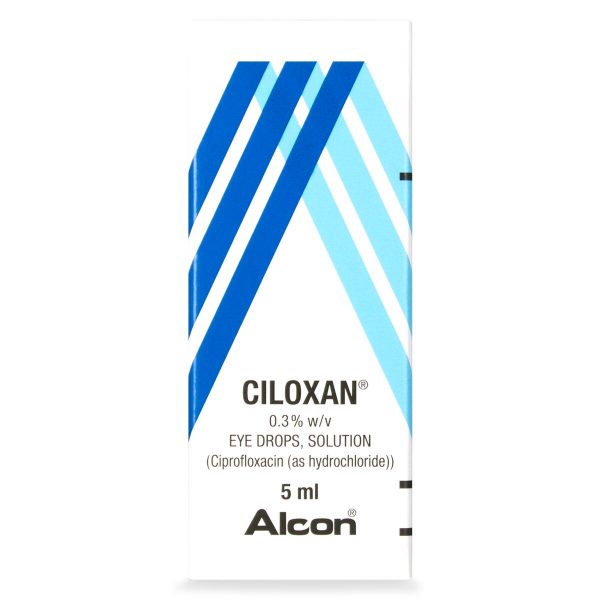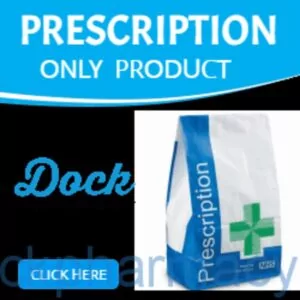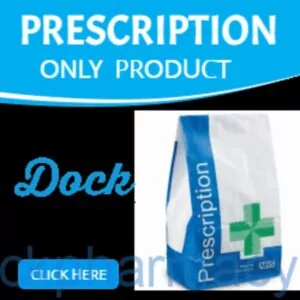- Ofloxacin 200mg Tablets
- Ofloxacin 400mg Tablets
- Description
- Additional Information
- Brand
- How To Use
- Product Details
- Side Effects
- Ingredients
- How to Store
- Patient Information leaflet
- Reviews (0)
- Questions & Answers
Ofloxacin Tablets
Explore the effective treatment of bacterial infections with Ofloxacin Tablets, now available at our online pharmacy in two strengths: Ofloxacin 200mg and Ofloxacin 400mg. This broad-spectrum antibiotic is designed to combat a wide array of bacterial infections, including those affecting the respiratory tract, urinary tract, skin, and soft tissues. Tailored to meet the needs of various health conditions, Ofloxacin provides a flexible and efficient solution for managing bacterial infections. With its proven efficacy and safety profile, Ofloxacin Tablets are a preferred choice for patients seeking quick and reliable treatment.
Product Benefits
- Broad-Spectrum Antibiotic: Targets a wide range of bacterial infections, ensuring comprehensive treatment options.
- Flexible Dosing: Available in 200mg and 400mg strengths to cater to different severities of bacterial infections.
- Rapid Action: Begins working quickly to fight off bacteria, reducing symptoms and promoting faster recovery.
- Convenient Treatment Course: Designed for ease of use with dosing that supports a straightforward treatment regimen.
- Versatile Application: Effective in treating respiratory tract infections, urinary tract infections, skin infections, and soft tissue infections.
Ofloxacin Tablets Reviews
After using Ofloxacin Tablets, it’s helpful to let others know about your experience. Reviews of an item help other users know that medicines received have helped the condition it is claimed for, how well the treatment worked or any issues to be aware of. We invite our users to leave a review of both their treatment and of the service provided. Click on the reviews tab to see if there has been feedback on this item.
What is the price of Ofloxacin Tablets?
The price of Ofloxacin Tablets starts from £16.20
Where can you buy Ofloxacin Tablets?
You can buy Ofloxacin Tablets at Dock Pharmacy Essex UK, UK Online Pharmacy.
Can you buy Ofloxacin Tablets Over the counter?
Ofloxacin Tablets is not available to buy over the counter. You need a prescription to buy Ofloxacin Tablets from Dock pharmacy. You can find more information about how to obtain the medication here:
Disclaimer: This product description is provided for informational purposes only. It is not a substitute for professional medical advice, diagnosis, or treatment. Always seek the advice of your physician or other qualified health provider with any questions you may have regarding a medical condition
Dock Pharmacy
128 Dock Road, Tilbury, Essex, RM18 7BJ
Tel: 01375846316
| Brand | |
|---|---|
| Strength | Ofloxacin 200mg Tablets, 10 Tablets, Ofloxacin 400mg Tablets, 5 Tablets, Ofloxacin 400mg Tablets, 10 Tablets |
Brand
Ofloxacin
How To Use
How to take Ofloxacin
Always take this medicine exactly as your doctor or pharmacist has told you
. Check with your doctor or pharmacist if you are not sure.
- For oral use. You should swallow these tablets whole with water. Do not chew them.
- The tablets can be taken with or without food and can be divided into equal doses.
- When taking Ofloxacin, avoid strong sunlight and do not use sun lamps or solaria as your skin may be more sensitive to light.
- If you are taking iron tablets (for anaemia), antacids (for indigestion or heartburn) or sucralfate (for stomach ulcers) or didanosine chewable or buffered tablets (for HIV), it is important not to take these two hours before or after taking Ofloxacin. If you feel the effect of your medicine is too weak or strong, do not change the dose yourself, but ask your doctor. • When taking Ofloxacin, if your eyesight becomes impaired or if your eyes seem to be otherwise affected, consult an eye specialist immediately
Product Details
What you need to know before you take Ofloxacin
Do not take Ofloxacin: • If you are allergic to ofloxacin or any of the other ingredients of this medicine (listed in section 6). Signs of an allergic reaction include: a rash, swallowing or breathing problems, swelling of your lips, face, throat or tongue. • If you have previously had an allergic reaction to another quinolone antibiotic e.g. ciprofloxacin or norfloxacin. • If you suffer from epilepsy or are at risk of fits • If you have a history of inflammation and swelling of the tendons (tendonitis) which can affect areas such as the wrist or the achilles tendon after treatment with a quinolone antibiotic e.g. ciprofloxacin, norfloxacin, or nadifloxacin. • If you suffer from or there is a family history of glucose-6-phosphate dehydrogenase deficiency (an inherited disorder that affects the red blood cells) • If you are pregnant, think you may be pregnant or are planning to have a baby. • If you are breastfeeding. • If you are under the age of 18 years, or are still growing. Page 3 of 11 Do not take this medicine if any of the above apply to you. If you are not sure, talk to your doctor or pharmacist before taking Ofloxacin. Warnings and precautions Before taking this medicine You should not take fluoroquinolone/quinolone antibacterial medicines, including Ofloxacin, if you have experienced any serious adverse reaction in the past when taking a quinolone or fluoroquinolone. In this situation, you should inform your doctor as soon as possible. Talk to your doctor or pharmacist before taking Ofloxacin if any of the following apply: • if you have been diagnosed with an enlargement or “bulge” of a large blood vessel (aortic aneurysm or large vessel peripheral aneurysm) • if you have experienced a previous episode of aortic dissection (a tear in the aorta wall) • if you have been diagnosed with leaking heart valves (heart valve regurgitation) • if you have a family history of aortic aneurysm or aortic dissection or congenital heart valve disease, or other risk factors or predisposing conditions (e.g. connective tissue disorders such as Marfan syndrome or Ehlers- Danlos syndrome, Turner syndrome, Sjögren’s syndrome (an inflammatory autoimmune disease) or vascular disorders such as Takayasu arteritis, giant cell arteritis, Behcet’s disease, high blood pressure, or known atherosclerosis, rheumatoid arthritis (a disease of the joints) or endocarditis (an infection of the heart)). • you have or have ever had a history of mental illness. • you have problems with your liver or kidneys. • you have heart disease or problems with your heartbeat. • you were born with or have family history of prolonged QT interval (seen on ECG, electrical recording of the heart). • have salt imbalance in the blood (especially low level of potassium or magnesium in the blood). • have a very slow heart rhythm (called ‘bradycardia’). • have a weak heart (heart failure). • have a history of heart attack (myocardial infarction). • you are female or elderly. • you are taking other medicines that result in abnormal ECG changes (see section Other medicines and Ofloxacin). • you have an illness of the nervous system called ‘myasthenia gravis’ (muscle weakness). • if you are diabetic or suffer from low blood sugar. During treatment When taking this medicine If your eyesight becomes impaired or if your eyes seem to be otherwise affected, consult an eye specialist immediately. If you: • experience a severe skin rash or allergic reaction, or • develop severe diarrhoea, (which may be bloody) with stomach pain and fever, or • notice pain, tenderness, or restricted movement of the tendons, or • notice numbness or tingling in the hands and feet • experience suicidal thoughts or self-endangering behaviour • change in blood glucose levels stop taking this medicine and talk to your doctor straight away. Page 4 of 11 If you feel sudden, severe pain in your abdomen, chest or back, which can be symptoms of aortic aneurysm and dissection, go immediately to an emergency room. Your risk may be increased if you are being treated with systemic corticosteroids. If you feel sudden, severe pain in your abdomen, chest or back, which can be symptoms of aortic aneurysm and dissection, go immediately to an emergency room. Your risk may be increased if you are being treated with systemic corticosteroids. If you start experiencing a rapid onset of shortness of breath, especially when you lie down flat in your bed, or you notice swelling of your ankles, feet or abdomen, or a new onset of heart palpitations (sensation of rapid or irregular heartbeat), you should inform a doctor immediately. Pain and swelling in the joints and inflammation or rupture of tendons may occur rarely. Your risk is increased if you are elderly (above 60 years of age), have received an organ transplant, have kidney problems or if you are being treated with corticosteroids. Inflammation and ruptures of tendons may occur within the first 48 hours of treatment and even up to several months after stopping of Ofloxacin therapy. At the first sign of pain or inflammation of a tendon (for example in your ankle, wrist, elbow, shoulder or knee), stop taking Ofloxacin, contact your doctor and rest the painful area. Avoid any unnecessary exercise as this might increase the risk of a tendon rupture. You may rarely experience symptoms of nerve damage (neuropathy) such as pain, burning, tingling, numbness and/or weakness especially in the feet and legs or hands and arms. If this happens, stop taking Ofloxacin and inform your doctor immediately in order to prevent the development of potentially irreversible condition. Prolonged, disabling and potentially irreversible serious side effects Fluoroquinolone/quinolone antibacterial medicines, including Ofloxacin, have been associated with very rare but serious side effects, some of them being long lasting (continuing months or years), disabling or potentially irreversible. This includes tendon, muscle and joint pain of the upper and lower limbs, difficulty in walking, abnormal sensations such as pins and needles, tingling, tickling, numbness or burning (paraesthesia), sensory disorders including impairment of vision, taste and smell, and hearing, depression, memory impairment, severe fatigue, and severe sleep disorders. If you experience any of these side effects after taking Ofloxacin, contact your doctor immediately prior to continuing treatment. You and your doctor will decide on continuing the treatment considering also an antibiotic from another class. If you are not sure if any of the above apply to you, talk to your doctor or pharmacist before taking Ofloxacin. Other medicines and Ofloxacin Tell your doctor or pharmacist if you are taking, have recently taken or might take any other medicines. You must tell your doctor if you are taking other medicines that can alter your heart rhythm: • medicines that belong to the group of anti-arrhythmics (e.g. quinidine, hydroquinidine, disopyramide, amiodarone, sotalol, dofetilide, ibutilide), • tricyclic antidepressants, (e.g. clomipramine, amitriptyline), • some antimicrobials (that belong to the group of macrolides e.g. erythromycin, clarithromycin, azithromycin), • some antipsychotics used to treat mental health conditions such as schizophrenia and bipolar disorder. Tell your doctor if you are taking any of the following medicines: • medicines or dietary supplements that contain iron (for anaemia) or zinc. • sucralfate used for stomach ulcers. Page 5 of 11 • antacids used for indigestion that contain magnesium or aluminium. • corticosteroids, used for treatment of inflammation and swelling or over-active immune system. These may increase the risk of you developing a tendon rupture. • painkillers called non-steroidal anti-inflammatory drugs (NSAIDs) e.g. ibuprofen or diclofenac, or theophylline, used to treat asthma or chronic obstructive pulmonary disease as these could make you more prone to fits if taken with ofloxacin. • glibenclamide, a medicine to control your blood sugar, as the amount of these medicines in the blood may increase and have a greater effect. • drugs that may affect your kidney function e.g. cimetidine (used for stomach ulcers or indigestion), probenecid (used for gout) and methotrexate (used for rheumatism) as they can increase the level of ofloxacin in the blood. • medicines to thin your blood, e.g. warfarin. Taking these with ofloxacin can increase the time it takes for your blood to clot. • If you are taking didanosine (a medicine used to treat HIV infections), you should not take the chewable, buffered tablets until at least two hours after taking ofloxacin. • water tablets (diuretics) such as furosemide. This medicine should not be taken within two hours of taking iron or zinc tablets, antacids, or sucralfate, as these medicines can stop Ofloxacin from working properly. If you are due to have urine tests for porphyrin (a pigment in the blood), or for opiates (strong painkillers), tell your doctor or nurse you are taking this medicine. Pregnancy and breast-feeding Do not take Ofloxacin if you are pregnant or breast-feeding, think you may be pregnant or are planning to have a baby. If you become pregnant while taking Ofloxacin, stop taking the tablets and contact your doctor immediately. Driving and using machines Taking Ofloxacin may make you feel sleepy, dizzy or could affect your eyesight. Do not drive or use machines until you know how this medicine affects you. Drinking alcohol may make these symptoms worse. Ofloxacin contains lactose If you have been told by your doctor that you have an intolerance to some sugars, contact your doctor before taking this medicine. This medicine contains less than 1 mmol sodium (23 mg) per tablet, that is to say essentially ‘sodium-free’.
Side Effects
Possible side effects
Like all medicines, this medicine can cause side effects, although not everybody gets them. Stop taking Ofloxacin, tell your doctor or go to your nearest hospital casualty department straight away if you have any of the following serious side effects because you may need medical attention: Uncommon (may affect up to 1 in 100 people): ▪ resistance of infection causing organisms to this treatment, (you may fail to respond to treatment) Rare (may affect up to 1 in 1,000 people): ▪ you have an allergic reaction. Such reactions may appear in the form of anaphylaxis (a severe form of allergic reaction) with symptoms such as: – severe skin rash – swelling of the face, lips, mouth, tongue or throat (angioedema) – anaphylactic shock (sudden wheezing, swelling of your lips, tongue and throat or body, rash, fainting or difficulties in swallowing) ▪ inflammation of the bowel, which may cause severe watery diarrhoea, which may have blood in it, possibly with stomach cramps and a high temperature ▪ swelling of the tendons with the following symptoms; pain, tenderness, sometimes restricted movement (tendonitis). This can lead to tendon rupture, especially of the large tendon at the back of the ankle (Achilles tendon). The risk of this occurring is increased if you are also taking corticosteroids e.g. prednisolone ▪ numbness or tingling in the hands and feet or being very sensitive to touch, numbness or weakness of the arms and legs ▪ blurred, double or altered colour vision. If your eyesight becomes impaired or if your eyes seem to be otherwise affected, consult an eye specialist immediately. Very rare (may affect up to 1 in 10,000 people): ▪ a condition in which the amount of oxygen-carrying pigment (haemoglobin) in the blood is below normal or an illness resulting from the destruction of red blood cells with the following symptoms; feeling tired, faint, dizzy, being short of breath when exercising and having pale skin. These may be signs of anaemia or haemolytic anaemia. ▪ other blood disorders when the numbers of different types of cells in the blood may fall, which may cause fever, chills, sore throat, ulcers in the mouth and throat (leucopenia, agranulocytosis) ▪ fits (seizures) ▪ skin rash, which may blister, and looks like small targets (central dark spots surrounded by a paler area, with dark ring around the edge) (erythema multiforme) ▪ a widespread rash with blisters and skin peeling on much of the body surface (toxic epidermal necrolysis). Page 8 of 11 ▪ narrowing, blockage or leakage of blood vessels, in exceptional cases leading to severe skin reactions and death of areas of the skin ▪ severe kidney problems, which may result in your kidneys stopping working. Signs may include a rash, high temperature, general aches and pains, or blood in the urine ▪ hearing problems or hearing loss ▪ liver problems, such as inflammation of the liver (hepatitis) or blockage in the bile duct, that may cause your eyes or skin to go yellow (jaundice) or you may notice the following symptoms; nausea, vomiting, loss of appetite, feeling generally unwell, fever, itching, light coloured bowel motions, dark coloured urine Not known (frequency cannot be estimated from the available data): ▪ abnormal fast heart rhythm, life-threatening irregular heart rhythm, alteration of the heart rhythm (called ‘prolongation of QT interval’, seen on ECG, electrical activity of the heart) ▪ severe depression or mental illness. Some people who are depressed think of harming or killing themselves. ▪ a serious reduction in all types of blood cells (pancytopenia), which may result from a failure of the bone marrow to produce these ▪ a widespread rash with blisters and peeling skin, particularly around the mouth, nose, eyes and genitals (Stevens Johnson syndrome). ▪ swelling of the lungs with the following symptoms; coughing, difficulty breathing, wheezing ▪ temporary paralysis or weakness of the muscles (rhabdomyolysis), disease of the muscles with the following symptoms; aching muscles, muscle tenderness or weakness, not caused by exercise ▪ an attack of porphyria (a rare blood pigment disorder) in patients with this disease ▪ muscle or ligament rupture ▪ inflammation of the pancreas (pancreatitis) – you may have severe pain in the stomach and back ▪ loss of consciousness (coma), due to a severe reduction in blood sugar levels ▪ inflammation of the eye (uveitis) ▪ skin redness with excessive scaling (exfoliative dermatitis) ▪ loss of appetite, skin and eyes becoming yellow in colour, dark-coloured urine, itching, or tender stomach (abdomen). These may be signs of liver problems which may include a fatal failure of the liver. Tell your doctor or pharmacist if any of the following side effects gets serious or lasts longer than a few days: Uncommon (may affect up to 1 in 100 people) ▪ feeling sick (nausea) or being sick (vomiting), diarrhoea or stomach pains ▪ irritated or burning eyes ▪ headaches, dizziness, sleep disturbances including difficulty sleeping (insomnia) ▪ feeling dizzy, having spinning sensations ▪ agitation, feeling restless ▪ cough and inflamed sore nose or throat (nasopharyngitis) ▪ fungal infection ▪ skin rash or itching Page 9 of 11 Rare (may affect up to 1 in 1,000 people) ▪ loss of appetite ▪ fast heart beat ▪ drowsiness ▪ loss of memory ▪ feeling weak or irritable, sweating and/or trembling. This could be due to lowering of blood sugar (glucose) levels especially in patients with diabetes or existing low blood sugar ▪ feeling confused or anxious, nightmares, seeing, feeling or hearing things that are not there, depression and mental illness ▪ changes in or loss of your sense of taste or smell ▪ shortness of breath or wheezing ▪ changes in levels of liver enzymes or bilirubin, which may be seen in blood tests ▪ excessive sweating and hot flushes ▪ changes in kidney function shown in blood tests ▪ feeling faint, lightheaded or dizzy, which may be due to low blood pressure ▪ hives (urticaria) ▪ rash with pimples ▪ delirium (acute confusional state) Very rare (may affect up to 1 in 10,000 people) ▪ uncontrolled movements, unsteadiness and shaking ▪ unusual bleeding or bruising more easily than normal (thrombocytopenia) ▪ increase in some white blood cells (eosinophilia) ▪ ringing in the ears (tinnitus) ▪ joint and muscle pains ▪ skin rashes or eruptions, which may be caused by strong sunlight ▪ unusual purple discolouration under the skin, which may be due to bleeding or bruising due to leaky or damaged blood vessels Not known (frequency cannot be estimated from the available data) ▪ a red, scaly rash with bumps under the skin and blisters (exanthemous pustolosis) ▪ muscular weakness, muscle tear ▪ an increase in blood sugar levels ▪ feeling of nervousness, tremor, unusual (involuntary) muscle movements, ▪ fainting ▪ digestive problems such as stomach upset (indigestion/heartburn), constipation, or wind ▪ general pain, pains in your muscles and stiffness in the bones/joints (arthritis), feeling unwell (asthenia), or fever ▪ persistent headache with or without blurred vision (benign intracranial hypertension). Very rare cases of long lasting ( up to months or years) or permanent adverse drug reactions, such as tendon inflammations, tendon rupture, joint pain, pain in the limbs, difficulty in walking, abnormal sensations such as pins and needles, tingling, tickling, burning, numbness or pain (neuropathy), depression, fatigue, sleep disorders, memory impairment, as well as impairment of hearing, vision, and taste and smell have been associated with administration of quinolone and fluoroquinolone antibiotics, in some cases irrespective of pre-existing risk factors. Cases of an enlargement and weakening of the aortic wall or a tear in the aortic wall (aneurysms and dissections), which may rupture and may be fatal, and of leaking heart valves have been reported in patients receiving fluoroquinolones. See also section 2. Page 10 of 11 Reporting of side effects If you get any side effects talk to your doctor or pharmacist. This includes any possible side effects not listed in this leaflet. You can also report side effects directly via the Yellow Card Scheme at www.mhra.gov.uk/yellowcard or search for MHRA Yellow Card in the Google Play or Apple App Store. By reporting side effects you can help provide more information on the safety of this medicine.
Ingredients
What Ofloxacin contains –
The active substance is ofloxacin.
Each film-coated tablet contains 200 mg or 400 mg ofloxacin. –
The other ingredients are: 200 mg tablets: maize starch, lactose, hydroxypropyl cellulose, croscarmellose sodium, magnesium stearate, hypromellose, titanium dioxide (E171), talc and macrogol 400. 400 mg tablets: maize starch, lactose, hydroxypropylcellulose, sodium starch glycollate (type A), magnesium stearate, hypromellose, talc, titanium dioxide (E171), macrogol 400, iron oxide yellow (E172), iron oxide black (E172) and carnauba wax.
How to Store
How to store Ofloxacin
Keep this medicine out of the sight and reach of children. Do not take this medicine after the expiry date shown on the pack. The expiry date refers to the last day of that month. This medicine does not require any special storage conditions. Do not throw away any medicines via wastewater or household waste. Ask your pharmacist how to throw away medicines you no longer use. These measures will help protect the environment.
Patient Information leaflet
Click here for the Patient Information leaflet
Please read before using the product
Only logged in customers who have purchased this product may leave a review.
Questions and answers of the customers
There are no questions yet, be the first to ask something for this product.
You Might Also Like
Strenght: 250mg Tablets, 20 Tablets
Learn More£5.99
- Availability: in stock
Original price was: £13.50.£12.45Current price is: £12.45.
Ciprodex ear drops is the new name for Cilodex ear drops
Learn MoreOriginal price was: £13.50.£12.45Current price is: £12.45.
- Availability: in stock
Original price was: £9.50.£8.95Current price is: £8.95.
Treatment of eye infections.
Can be prescribed by vet for dogs and cats
Learn MoreOriginal price was: £9.50.£8.95Current price is: £8.95.
- Availability: in stock
Original price was: £16.50.£11.50Current price is: £11.50.
Moxifloxacin Tablets 400mg, 5 Tablets Introducing Moxifloxacin Tablets 400mg, a powerful antibiotic now available in our online pharmacy, designed to combat a wide range of bacterial infections. Each tablet is formulated to deliver a potent dose of Moxifloxacin, a broad-spectrum antibiotic that targets various bacteria responsible for respiratory tract infections, skin infections, and more. This […]
Learn MoreOriginal price was: £16.50.£11.50Current price is: £11.50.
- Availability: in stock
Other Products From This Seller
Original price was: £31.00.£10.95Current price is: £10.95.
Chopard Wish Eau de Parfum 30ml Sweet and Oriental Fragrance for Women Indulge in elegance with Chopard Wish Eau de Parfum, 30ml, a sweet and oriental fragrance for women that exudes sophistication and charm. This luxurious scent by Chopard is inspired by the allure of wishes and dreams, blending warm and sensual notes for a […]
Learn MoreOriginal price was: £31.00.£10.95Current price is: £10.95.
- Availability: in stock
Original price was: £84.00.£26.95Current price is: £26.95.
Vera Wang Lovestruck Eau de Parfum 100ml Romantic Floral and Feminine Fragrance Celebrate romance and femininity with Vera Wang Lovestruck Eau de Parfum, 100ml, a romantic floral fragrance for women inspired by love at first sight. This enchanting scent captures the essence of passion and charm with a blend of delicate florals and sweet fruity […]
Learn MoreOriginal price was: £84.00.£26.95Current price is: £26.95.
- Availability: in stock
Original price was: £25.00.£9.95Current price is: £9.95.
Gloria Vanderbilt Vanderbilt EDT Spray, 100ml Timeless Floral Elegance Embrace timeless elegance with Gloria Vanderbilt Vanderbilt Eau De Toilette Spray, 100ml, a sophisticated floral fragrance for women that captures grace, femininity, and charm. Designed for confident and classic women, this iconic scent by Gloria Vanderbilt combines delicate floral notes with warm undertones for a long-lasting […]
Learn MoreOriginal price was: £25.00.£9.95Current price is: £9.95.
- Availability: in stock
Original price was: £34.00.£15.95Current price is: £15.95.
Elizabeth Arden Splendor Eau De Parfum, 125 ml Sophisticated Floral Fragrance Indulge in timeless elegance with Elizabeth Arden Splendor Eau De Parfum, 125ml, a sophisticated floral fragrance for women that exudes grace and charm. Inspired by moments of pure splendor, this iconic scent by Elizabeth Arden combines floral and woody notes for a captivating and […]
Learn MoreOriginal price was: £34.00.£15.95Current price is: £15.95.
- Availability: in stock
Original price was: £44.00.£19.95Current price is: £19.95.
Elizabeth Arden Red Door Eau De Toilette Spray 50ml Timeless Floral Elegance Step into timeless elegance with Elizabeth Arden Red Door Eau De Toilette Spray, 50ml, a classic floral fragrance for women that has become an icon of sophistication. Inspired by the legendary Red Door Spa, this luxurious scent captures the essence of femininity with […]
Learn MoreOriginal price was: £44.00.£19.95Current price is: £19.95.
- Availability: in stock
Original price was: £55.00.£19.95Current price is: £19.95.
Estee Lauder Pleasures EDP 30ml Fresh and Floral Fragrance for Women Experience the timeless elegance of Estee Lauder Pleasures Eau de Parfum, 30ml, a fresh and floral fragrance for women that captures the beauty of life’s simplest pleasures. This classic scent by Estee Lauder is designed for modern, sophisticated women who appreciate light, airy fragrances. […]
Learn MoreOriginal price was: £55.00.£19.95Current price is: £19.95.
- Availability: in stock
Original price was: £34.99.£19.95Current price is: £19.95.
Sarah Jessica Parker Lovely You Eau de Parfum Spray 100ml Sophisticated Floral and Musky Fragrance Step into timeless elegance with Sarah Jessica Parker Lovely You Eau de Parfum Spray, 100ml, a floral and musky fragrance for women that embodies sophistication and modernity. Created by Sarah Jessica Parker, this iconic scent celebrates femininity with a delicate […]
Learn MoreOriginal price was: £34.99.£19.95Current price is: £19.95.
- Availability: in stock
Original price was: £47.00.£29.95Current price is: £29.95.
Kenzo Flower Eau De Toilette Spray 30ml Fresh and Floral Fragrance for Women Experience the delicate beauty of nature with Kenzo Flower Eau De Toilette Spray, 30ml, a fresh and floral fragrance for women inspired by the elegance of the red poppy. This iconic scent combines floral and powdery notes to create a delicate and […]
Learn MoreOriginal price was: £47.00.£29.95Current price is: £29.95.
- Availability: in stock
Original price was: £47.00.£29.95Current price is: £29.95.
Jimmy Choo Eau de Parfum 40ml Sweet and Floral Fragrance for Women Step into a world of luxury and confidence with Jimmy Choo Eau de Parfum, 40ml, a sweet and floral fragrance for women that embodies modern glamour. Designed for women who exude confidence and style, this Jimmy Choo perfume for women blends fruity and […]
Learn MoreOriginal price was: £47.00.£29.95Current price is: £29.95.
- Availability: in stock
Original price was: £52.00.£23.95Current price is: £23.95.
Issey Miyake L’Eau d’Issey Pure Nectar Eau de Parfum Spray, 30ml Floral and Aquatic Elegance Discover the purity of nature with Issey Miyake L’Eau d’Issey Pure Nectar Eau de Parfum Spray, 30ml, a floral and aquatic fragrance for women that encapsulates elegance and sophistication. This Issey Miyake perfume for women combines fresh and delicate notes […]
Learn MoreOriginal price was: £52.00.£23.95Current price is: £23.95.
- Availability: in stock






















Reviews
There are no reviews yet